IRGC Commander Praises Role OF Universities In Iran's Military Advances
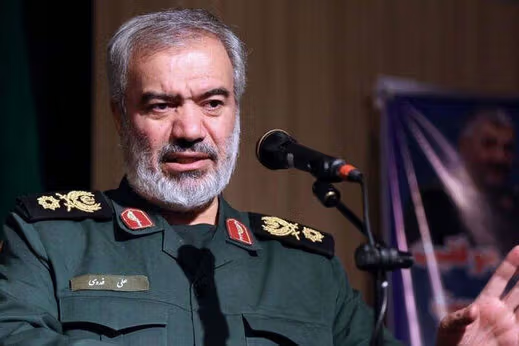
The deputy commander of Iran’s Revolutionary Guard has said that Iranian universities and academics have been useful in advancing military development projects.

The deputy commander of Iran’s Revolutionary Guard has said that Iranian universities and academics have been useful in advancing military development projects.
Ali Fadavi told the official government news website IRNA on Tuesday, December 14, that in the IRGC navy “A lot of cooperation and activities have taken place with universities,” that have not been mentioned due to their secret nature.
He added that 14 universities helped boost Iran’s naval capabilities and played an important role in many other areas.
“We in the Islamic Revolution Guard Corps have used the capabilities of students, researchers and academics at different times and for a variety of problems, especially in the most difficult tasks, meaning in the military field,” Fadavi was quoted as saying.
In the Islamic Republic authoritarian system all resources are at the disposal of the state, especially military and security organs, but since the 1979 revolution and especially in the past decade, Iran has suffered from a “brain drain”, as more educated younger people have been leaving the country in significant numbers.
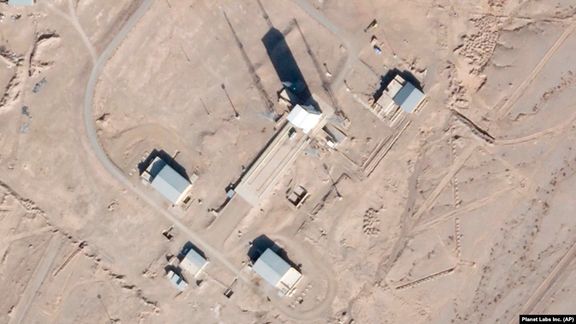
Iran appears to be preparing for a space launch as talks continue in Vienna over its tattered nuclear deal, according to an expert and satellite images.
The likely blast off at Iran's Imam Khomeini Spaceport comes as Iranian state media has offered a list of upcoming planned satellite launches in the works for the Islamic Republic's civilian space program, which has been beset by a series of failed launches.
Iran’s President Ebrahim Raisi visited a space technology exhibition in Tehran on November 26 and asked officials to work on reaching the 36,000 km orbit around the earth in four years.
Currently Iran is attempting to place satellites in the 500-kilometer orbits.
Minister of Communications and Information technology, Issa Zarepour, who supervises Iran’s space program had told local media that the project to reach the high orbit was planned to be accomplished in 10 years, but Raisi asked to speed up the program. The president pledged all the assistance needed to help Iran’s Space Agency.
Iran's Revolutionary Guard runs its own parallel program that successfully put a satellite into orbit last year.
Satellite images taken Saturday by Planet Labs Inc. show activity at the spaceport in the desert plains of Iran's rural Semnan province, some 240 kilometers (150 miles) southeast of Tehran.
A support vehicle stood parked alongside a massive white gantry that typically houses a rocket on the launch pad. That support vehicle has appeared in other satellite photos at the site just ahead of a launch. Also visible is a hydraulic crane with a railed platform, also seen before previous launches and likely used to service the rocket.
Conducting a launch amid the Vienna talks fits the hardline posture struck by Tehran's negotiators, who already described six previous rounds of diplomacy as a "draft," exasperating Western nations. British and German foreign minister have gone as far as to warn that "time is running out for us at this point."
The United States and other countries are concerned that Iran’s satellite program is a cover for developing ballistic missiles that can exceed the current 2,000 km range of Iranian vehicles. Regional and Western countries say that beyond Iran’s nuclear program, its ballistic missiles should also be curbed. Highlighting a space program, Tehran can argue that it needs the technology for peaceful, space related efforts.
But all this fits into a renewed focus on space by Iran's hardline President Ebrahim Raisi, said Jeffrey Lewis, an expert at the James Martin Center for Nonproliferation Studies at the Middlebury Institute of International Studies who studies Tehran's program.
With Iran's former President Hassan Rouhani who shepherded the nuclear deal out of office, concerns about alienating the West with the launches likely have faded.
"They're not walking on eggshells," Lewis told AP. "I think Raisi's people have a new balance in mind."
With reporting by AP
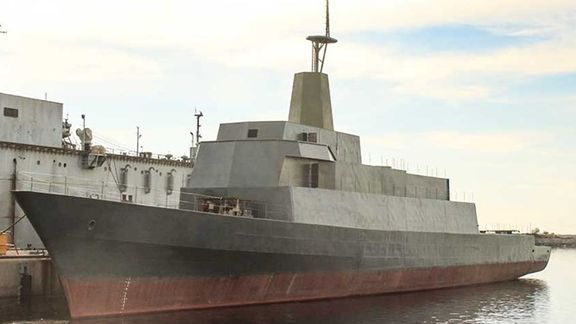
Iran’s Army has announced that a homegrown intelligence gathering ship has been developed and being tested for deployment, Fars news agency reported on Sunday.
The vessel named Shiraz is the first destroyer class warship capable of housing a helicopter and a revamped deck for Iranian-developed radars.
Fars quoted the commander in charge of the Army’s naval industries as saying that Shiraz has a wide array of equipment for electronic warfare and intelligence gathering, developed by national resources. The ship is in the final stages of testing he said, and will join the Army’s navy.
There is no independent confirmation of the claim.
While Iran’s traditional Army (Artesh) has its own navy and manages most of Iran’s naval development projects, the Revolutionary Guard also has its own navy. Iran has been forced to rely on its homegrown means to maintain a navy as a previous UN arms embargo and sanctions have prohibited the open acquisition of arms.
Satellite imagery and footages that emerged a week ago showed an Iranian naval vessel which was under construction at Bandar Abbas port had capsized. The identity and type of the vessel remained unknown, and Iran never acknowledged the incident.
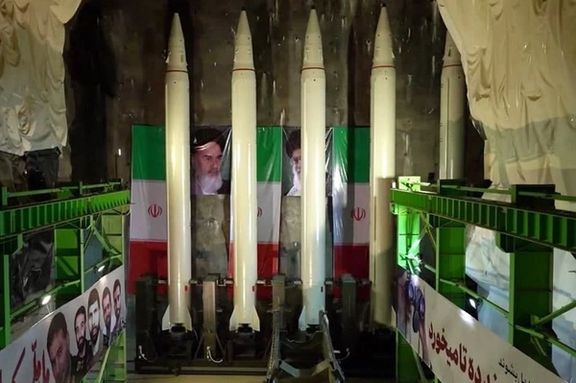
An Iranian website has quoted a top military official as threatening retaliation with missiles if the United States and Israel attack Iran’s nuclear sites.
US and Israel this week said they are considering joint military drills to prepare for action against Iran if current nuclear negotiations fail and political leaders decide to act to prevent Tehran from acquiring nuclear weapons.
Nour News close to Iran’s Supreme National Security Council Saturday in a brief report quoted a military official as saying that Iranian commanders would take an attack as an opportunity to test their missiles “on real targets, to extract a heavy price from aggressors who would violate the territory of the Islamic Republic.”
The military official also mentioned the January 8, 2020 ballistic missile attack on the Ain al Asad base in Iran hosting US troops and the concussion more than one hundred US troops received. He said he does not believe these soldiers would be willing to attack Iran.
Israeli officials have been reiterating that if a new nuclear agreement does not block Iran from its path to acquire nuclear arms, Israel has to ensure its security in any way possible, without seeking approval by the United States.
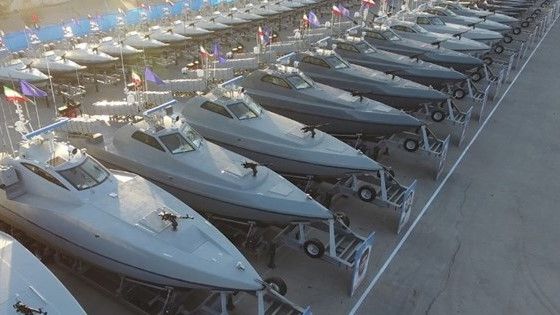
Iran launched 110 new navy speedboats in Bandar Abbas at the Strait of Hormuz on Saturday, capable of launching ship-to-ship missiles, the IRGC announced.
Iran’s Revolutionary Guard Navy has hundreds of speedboats produced based on limited naval production capabilities, that are meant to attack and swarm larger enemy vessels. The speed boats have harassed US Navy warship on numerous occasions.
Hossein Salami, the commander of the Revolutionary Guard (IRGC) chaired ceremonies saying that the launch was the seventh time this year new vessels and weapons systems were added to the navy.
Salami said that amid sanctions “we are expanding our defensive power” led by the guidance of Supreme Leader Ali Khamenei. He added that in order to “live free and independent” Iran needs to be powerful. The IRGC commander claimed that if Iran was not powerful, the Muslim countries in the region would have been dominated and destroyed by enemies. He added that Iran is determined “to increase its power on daily basis.”
Critics point out that Islamic Republic’s nuclear and missile programs, as well as its regional adventures have led to international and US sanctions over the years that have impoverished weakened the country.
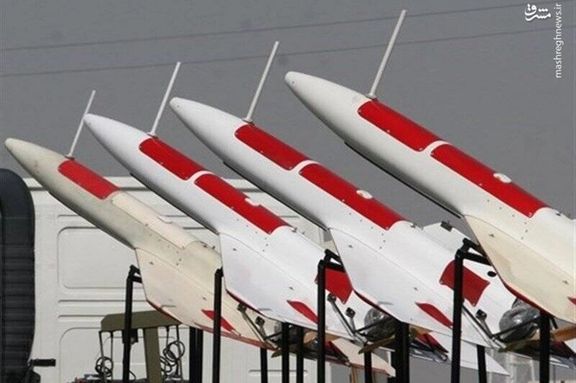
The US House Foreign Affairs Committee Friday passed a bipartisan bill that would ban the supply, sale or transfer of military drones to or from Iran under US law.
The bill was introduced by a group of Republicans and Democrats in late November. The lawmakers behind the proposed legislation (H.R. 6089), the Stop Iranian Drones Act (SIDA), say it clarifies that US sanctions on Iran’s conventional weapons program under CAATSA (The Countering America’s Adversaries Through Sanctions Act) include the supply, sale or transfer to or from Iran of drones.
The draft legislation was presented by House Foreign Affairs Committee Chairman Gregory Meeks (D-NY), Michael McCaul (R-TX), Ted Deutch (D-FL), and Joe Wilson (R-SC) Tuesday.
Iran’s military drone program has expanded in recent years and UAV’s have been more frequently used in attacks in recent months both on land and at sea.
In an interview with the Associated Press on Friday, commander of CENTCOM Gen. Kenneth McKenzie expressed concern over the growing capabilities of Iranian missiles and drones.
“Iran’s UAV proliferation continues to threaten the U.S. and our allies throughout the Middle East. Whether the attack is launched by Iran, the Houthis, Iran-backed militia groups or any other Iran-sponsored entities, these attacks are intolerable,” Rep. McCaul said.